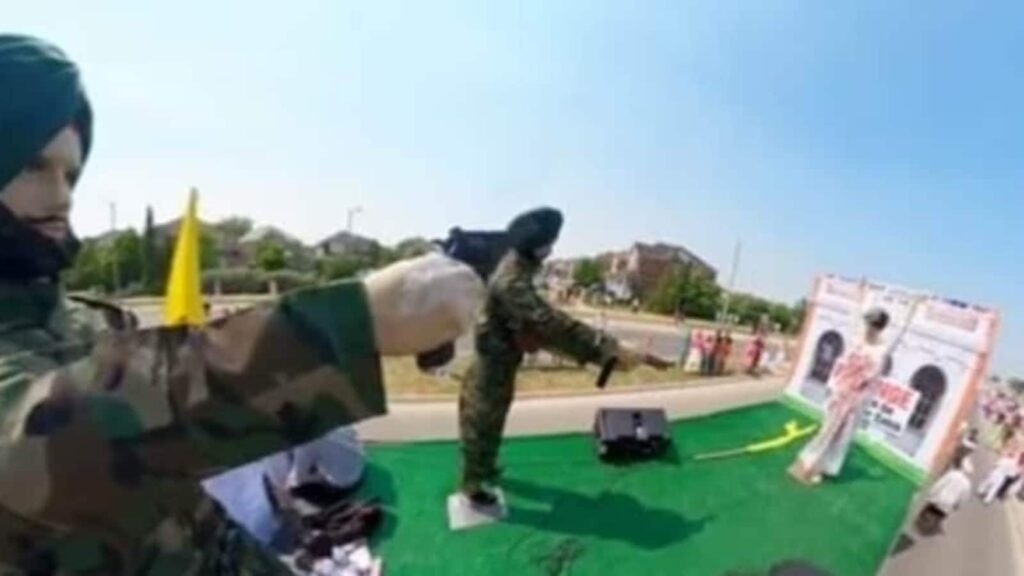In a hyper-connected world, ideologies and politics often spill beyond national borders. But even by the standards of a globalised order, the events in Canada this week were beyond the pale, and represented an impulse so extremist that India’s external affairs minister, S Jaishankar, had to officially step in. To mark the 39th anniversary of Operation Bluestar, pro-Khalistani groups put together a tableau depicting the assassination of former prime minister (PM) Indira Gandhi as part of an event organised in the Greater Toronto Area of Canada.
The float depicted the assassination as “revenge” for Operation Bluestar, the military action ordered by Mrs Gandhi in 1984 to flush out separatist leader Jarnail Singh Bhindranwale and his supporters from the Golden Temple complex in Amritsar. The so-called “shaheedi” float had a sign that said the assassination was “revenge for attack on Shri Darbar Sahib”, referencing the controversial storming of the Golden Temple complex. This unacceptable glorification of the assassination of a PM would rile any country, and India immediately reacted.
On Wednesday, India’s high commission in Ottawa sent a formal note to Canada’s foreign ministry to express displeasure. A day later, Dr Jaishankar cautioned the Canadian government that the activities of Khalistani elements on their territory could impact bilateral relations and have security implications. The foreign minister also mentioned Australia and the United Kingdom. The import of his address was clear — though Khalistani supporters are a vanishingly small constituency in India and increasingly marginalised abroad — New Delhi took a stern view of foreign governments continuing to provide space to these extremist elements, and that this will inevitably have an adverse impact on bilateral ties.
This is but expected. No country in the world will sit idly by if crimes committed in its jurisdiction are extolled beyond its frontiers, potentially fanning the flames of an extremist ideology that once waged war against the State. There is legitimate criticism of Operation Bluestar and the Indian government’s handling of Punjab in the 1980s — including human rights excesses — but these have been expressed eloquently through the country’s democratic systems, and many spouts of literature, poetry and music. The tableau was the macabre celebration of an illegal, violent act — plain and simple. It is unacceptable in any civilised society. Khalistani extremism in Canada dates back to the post-1984 period. In 1985, a Canada-based extremist outfit, Babbar Khalsa, plotted and executed the mid-air bombing of an Air India flight. The ideology saw a marked resurgence in the past decade, stoked by some religious outfits and patronised by local politicians looking to secure votes in elections. In 2018, Canada listed Khalistani extremism as a possible terror threat on its soil. Yet, to New Delhi’s exasperation, the Canadian government’s soft pedalling on pro-Khalistan lobbies hasn’t stopped.
After the appalling tableau, however, New Delhi appears to have drawn a line in the sand. Ottawa must look beyond myopic political considerations and towards the larger goal of bilateral cooperation and signal no tolerance for violent ideologies. After all, Khalistani extremism holds an equally menacing threat to a country’s internal security. It’s a lesson that Canada should take note of.
Enjoy unlimited digital access with HT Premium
Subscribe Now to continue reading


